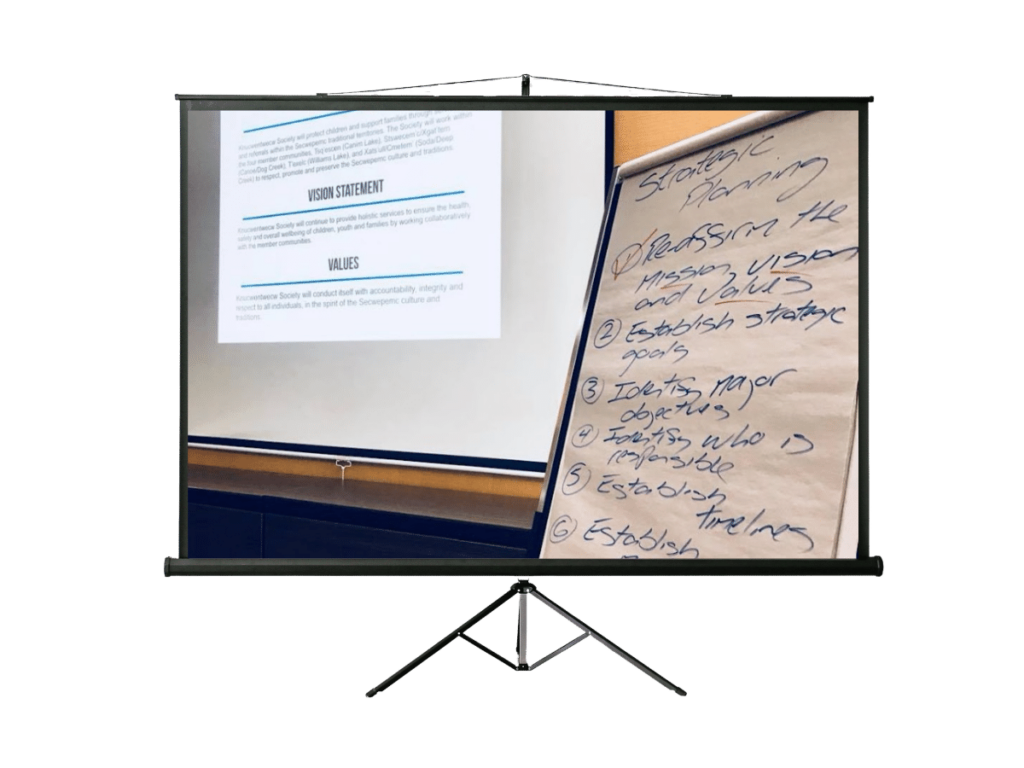72% of consumers report that they will not buy goods or services from a company or a brand that does not reflect their values. So how can you leverage this chance to further their cause with the consumers telling brands that they’re going to vote with their wallets? The answer is sponsorship programs for nonprofits. In this episode of the Strategic Nonprofit Podcast, host Trista sits down with Ken Ungar to discuss the importance of nonprofit sponsorship programs and some of the dos and don’ts of organizing your own.
Also read:
- A Guide To Nonprofit Board Roles And Responsibilities
- How Covid-19 Helped Pivot The Success Of One Nonprofit
- The Ultimate Guide to the Nonprofit Strategic Planning Process
What is sponsorship?
Sponsorship is a form of marketing where two organizations promote each other. The sponsor pays for the right to use a company’s intellectual property, for example, their logo, name, and likeness, to promote the sponsor’s products and services.
What is the purpose of a sponsorship program for nonprofits?
Corporate businesses are attracted to sponsorship programs for nonprofits because it makes them look good. When connecting with a charitable cause that aligns with their goals, they can boost their reputation. More so, because of the “halo effect” of the NPO’s “good will,” they’re likely to gain customers. Likewise, it’s a proven, reliable, and certain way for nonprofits to get their message out and increase awareness of the operation and cause.
Sponsorship Vs. Donations Vs. Grants: What’s the difference?
A donation is the receipt of a contribution from a donor without the expectation of promotion. So the donor is giving for the sake of the cause. In contrast, a grant is when you’re receiving money, usually for a specific earmark or a particular purpose. Often from a government or foundation that wants to help promote the cause. Sponsorship is different because a sponsor seeks recognition for the “contribution.”
How to start creating a sponsorship program for your nonprofit
Check out Ken’s advice when it comes to creating a sponsorship program for nonprofits below:
1. Be market-ready
First, as Ken advises, organizations must be market or sponsorship ready before creating a sponsorship program. If the nonprofit has a strong marketing program, it will have a strong sponsorship program. So, that means they should have a marketing program that they use every day—for example, a social media strategy, PR strategy, newsletters for donors, etc.
Because ultimately, the sponsor is looking to piggyback on the nonprofit’s marketing. So it’s imperative that their marketing be as strong as possible before they go to the market to sell sponsorship.
2. Develop a sponsorship policy
Second, nonprofits must create a sponsorship policy. A sponsorship policy is when the nonprofit leadership agrees on the parameters of what makes a good sponsor and what does not. This helps to align both the nonprofits’ and the businesses’ goals. If not, you could risk tarnishing your credibility, reputation and further advocacy for your cause.
So when creating your nonprofit sponsorship policy, you must consider what type of business is appropriate to sponsor your case. For example, if your nonprofit’s cause encourages plant-based diets, you might not want to pick a butcher shop as your sponsor! The idea is to create synergy.
Final thoughts: Nonprofit sponsorship trends
Lastly, there’s a trend that has been building steam for quite some time in the nonprofit sponsorship space. Something Ken likes to call a “purpose-driven spot.”
It centres on the fact that consumers now expect companies and brands to act in a socially responsible way. Consumers look to companies with the purchasing power to influence all sorts of socially responsible causes.
So much that 86% of consumers report that they will only buy a product or service from a brand that matches their values that promotes their values. About 72% of consumers say that they will not purchase goods or services from a company or a brand that does not reflect their values. Ultimately, consumers are telling brands that they will vote with their wallets.
Companies that want to stay relevant have to demonstrate that they are acting in a socially responsible way. So we expect that the pace of purpose-driven sponsorship will only increase for nonprofits. Overall it is an opportunity for nonprofits to find new and enhanced revenue streams and inspire new donors.
About Ken Ungar
Ken Ungar is a sponsorship consultant and president of Charge, a sponsorship consulting firm based in Indianapolis, who have clients all over North America and provide sponsorship counselling for both buyers and sellers of sponsorship.
Create a brighter future for your organization with AMC
AMC’s skilled strategic planning facilitators can help you navigate complex issues and build the transformative plan you need for success.
Whether you have a specific goal, troublesome problem or a new exciting opportunity you need assistance navigating -AMC’s customized strategic planning sessions will help.
Contact us today to learn how AMC’s Strategic Planning facilitators can help your organization develop, improve, and grow.

